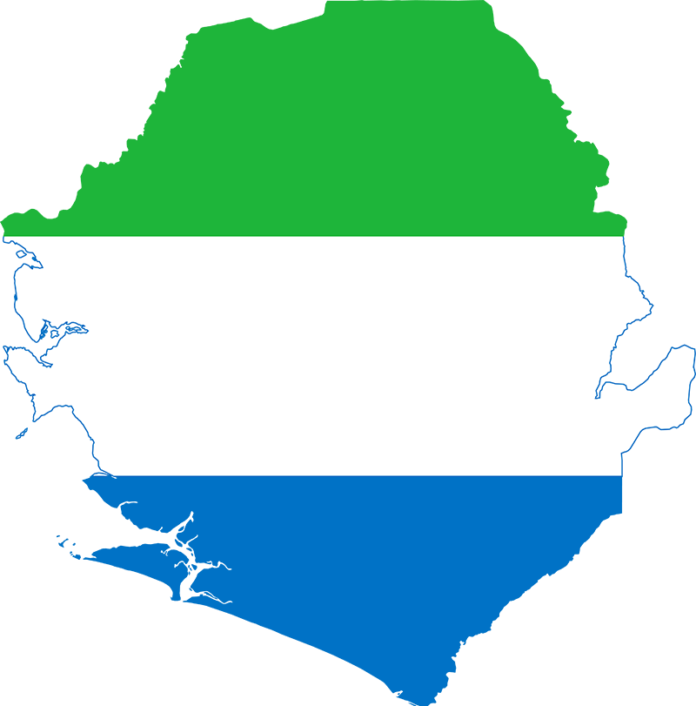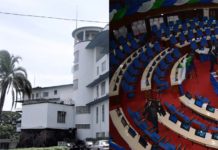

By Mahmud Tim Kargbo
If there is one thing most Sierra Leoneans can agree on about the political and social developments of the last decade and a half, it is that our communal project feels threatened. It is not just that the Sierra Leone People’s Party and the All People’s Congress disagree about policies, legislation, or even elections. We now fight over reality and find it harder to maintain friendships with those from across our various divides. We are more likely to believe it is no longer profitable for Southerners and Northerners and for the various tribes and the secular parts of our society to live together under one coherent political union.
And yet, there are still reasons to be hopeful if one thinks of Sierra Leone as a series of difficult disputes settled, over the course of years and through a diverse array of means. For instance, we do not need to look back to the Civil War to find examples of partisan and tribal divides colouring the day-to-day relationships in Sierra Leoneans’ life. For example, the popular actions during the eleven years of civil war show fierce partisanship, political pessimism, and commercialisation of sensationalising political disputes.
In this spirit, late President Ahmad Tejan Kabbah offered thoughtful leadership for our consideration. The question Sierra Leonean Citizenship and Constitutionalism in Principle and Practice seeks to answer is whether we can still live together coherently in spite of our differences after the presidency of late Ahmad Tejan Kabbah. The collective answer of these pieces is that we can, but that it will not be a smooth road. Years of experience offer us this tentative hope in two ways. First, by providing thoughtful examinations of specific historical cases where past Sierra Leoneans navigated fundamental challenges, and secondly, by mining the design of Sierra Leonean constitutionalism for tools, we can wield to help us get through the political challenges of our day.
Among the specific issues late President Ahmad Tejan Kabbah efficiently dealt with during his government, a few are particularly salient today. Perhaps the best place to look for tips on getting through today’s tests is to examine how Sierra Leoneans of the past handled similarly intense disputes. For instance, looking across Sierra Leone’s history, we see that working for incremental political improvement is the norm, rather than the exception, among the great reformers. Looking at the lives of the most influential Sierra Leoneans (such as Dr Mohamed Sorie Forna, Hindolo Tyre, John Bangura, Mana Kpaka, Ahmad Tejan Kabbah, Lightfoot Boston etc.), we also see that combining honesty about injustices with a generosity that holds out hope for future change.
Likewise instructive is the reexamination of Publius’s conceptions of the Sierra Leone system. The value here is both in looking at what the sharpest early Sierra Leonean minds correctly foresaw and seeing where their predictions have gone astray. As much as anything, this essay invites humility which is vital to a functioning democracy. If specific politicians in the current dispensation could be so wrong about how political parties would influence their country, or, maybe most importantly, about the eventual power dynamics in the relationship between Parliament and the presidency and how to save our country from neocolonial financial rogues, then we ought to accept that some of our politicians and academics, with the deepest convictions, cannot tell us with certainty how a novel policy proposal is going to shape our society for generations to come. One question this leaves us with in the practical sphere is what we can do about the areas where our system has not succeeded in moderating conflict. Sierra Leoneans, on both the Sierra Leone People’s Party and the All People’s Congress, would do well to think hard about this because patching the holes of a civil political discourse could grow harder as strife wears on our collective sense of confidence in our political institutions.
Among the writers that examine the way Sierra Leone currently does broad civic education is Dr David Moinina Sengeh, Minister of Basic and Senior Secondary Education. He’s looking at how Sierra Leoneans have worked, and can work anew, to “[craft] the cords that bind” Sierra Leoneans to one another in civic life. My concern is what we can do to better nurture the breadth and depth of civic loyalty within the hearts of Sierra Leoneans today. My examination of our unique history leads me to conclude that it is not enough to remind Sierra Leoneans that we live in the same land; rather, we need a new robust approach to civic education that inculcates in us a love for our specific political and historical gifts.
Why would Sierra Leoneans buy this perspective in a time of shrill partisanship? Precisely because of the tenor of our discord, the value of a robust, imperfect, common good that can be appealing. We need not all like each other, but if we truly work to live together, knowing that doing so is not only materially beneficial but historically impressive, we should have a better chance at regaining a nomos, even though it will not be exactly the one anyone Sierra Leonean most desires. While this essay is creatively hopeful, it will not be an easy task to reignite a broad commitment to our system, above and beyond the partisan level. It may not be the case that a national approach to civic education can work as well as it did before, but that still leaves us with the question of what actually to do, even in part, to reset the foundation of citizen investment in the idea of Sierra Leone and a commitment to its practical workings.
Late President Ahmad Tejan Kabbah provides another worthy historical examination for today’s citizens. He revisited his progressive administrative skills to find APC members of that time defending the strong party system—that was a political environment where a small number of political parties powerfully channelled almost all important political decision-making—as an important tool for channelling democracy toward a common good. This essay is a timely response to the many Sierra Leoneans who now casually lament that our system has only two parties, that the parties do not seem different enough, that they are both home to zealots, or even that we have parties at all. Ahmad Tejan Kabbah recovered the argument that without strong parties, we will have no mechanism for channelling our passions, competing interests, and political energy.
Put another way, if we do not have strong parties that have a chance to harness and organise our diverse “factions,” then what hope do we have for a functioning political life in the long term? Or we can think about it this way: The two big parties are not going anywhere, at least not any time soon. We may not like them. In fact, most of us do not like either of them right now. But we do not have a real chance, legally or politically, of replacing them anytime soon. They have enshrined their power into state election laws, all three branches of the government, and voters’ political imaginations. It might not be easy to make them representative of broad swaths of Sierra Leone or to have them check and moderate each other, but we had better try. Wishing the parties away for today’s Sierra Leone is like wishing a family history of a specific health threat away. The only response is to know and combat the threat rather than to hope it disappears. Of course, accepting that the parties we have are better than most likely alternatives does not do anything to solve the issues the current system presents. We should think carefully and in search of specific practical reforms toward the end of improving the things that do cure the party system we have today.
Taken together, SLPP and APC, along with the impressive collection of thinkers who continue to contribute to our contraption, provide their readers with an innovative, historically grounded, and good faith look at Sierra Leone today and how we might work toward a better Sierra Leone tomorrow. This is not a manual for those who want quick fixes and is not Pollyanna’s treatise of Sierra Leonean exceptionalism. And this is where its virtue lies. It takes a sober look at where we have come to and resolves to use our history, the creativity built into our unique system, and a commitment to civic hopefulness as tools to do the real work of citizenship: to strive to see the good in one’s fellow Sierra Leonean and to apply one’s gifts toward making the whole community a place with a stronger common good. While this anthology presents a worthy look at some of the major things that trouble Sierra Leone’s democracy today, it is short on specific, realistic policy proposals that could lead to widespread improvement. The question of what to do next, then, is largely left up to the reader, but it is the most important conundrum facing those who want to rejuvenate Sierra Leonean political life.


